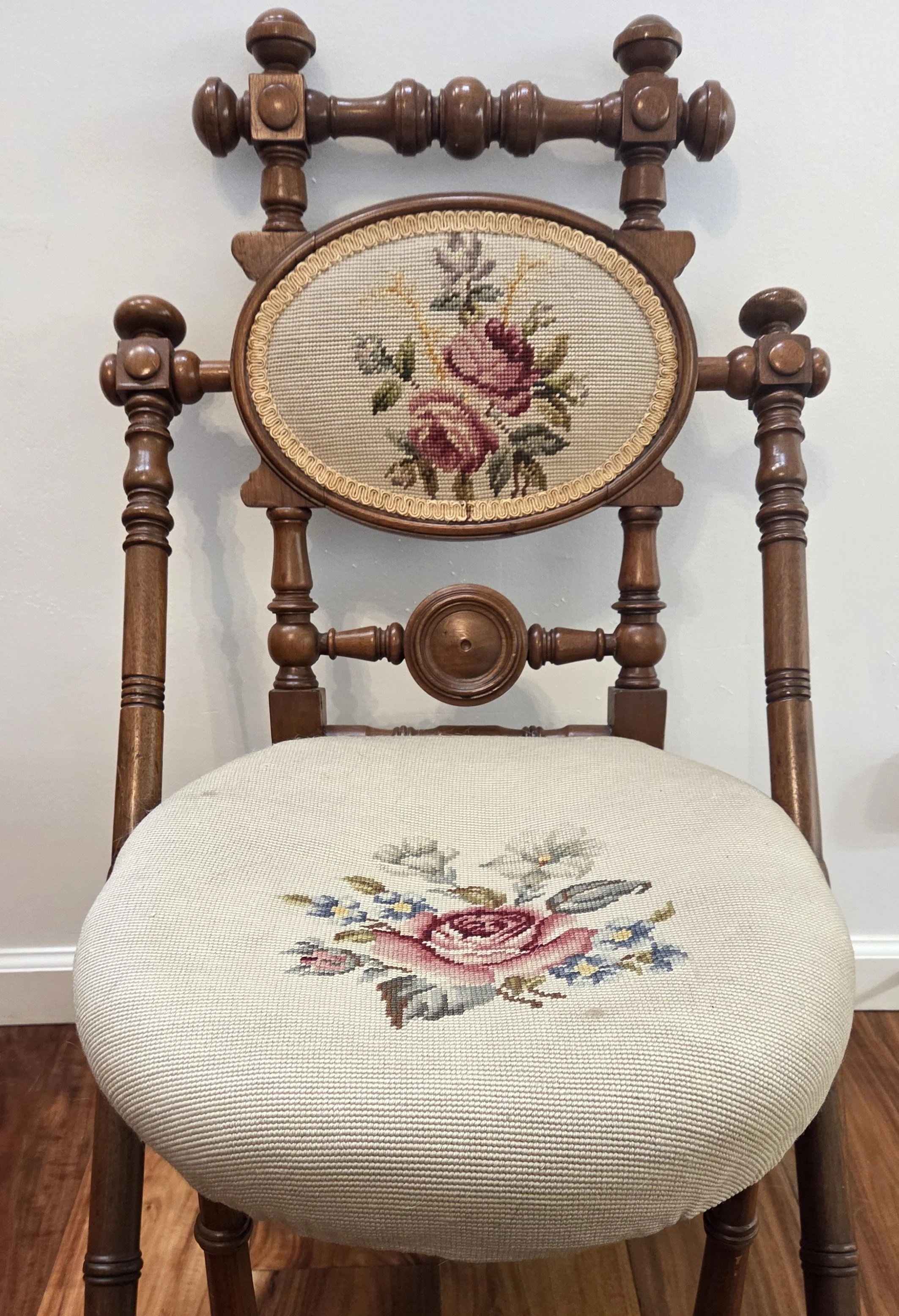
Fonetic Speliŋ
I’ve written quite a bit already about my Longley relatives, including Thomas, who spoke out against slavery in Kentucky in 1805, and Abner, who joined a utopian socialist community in 1844. I joke sometimes that this branch of my family never met a radical idea they didn’t want to try out, and there’s actually some truth to that. Abner’s sons continued this pattern, becoming journalists, printers, flag and playing card manufacturers, utopian socialists, and in the case of his oldest son Elias Longley, a passionate advocate for phonetic spelling. It is Elias and his wife Margaret Vater Longley about whom I am writing today and in my next post.

A Well-Known Furniture Manufacturer
My mother owned quite a few antiques although she wasn’t really a collector. She only occasionally purchased antiques herself, but she had many objects that she had inherited from family members. When she passed away last year, I went through these items and consigned most of them to an antique store. I ended up keeping one chair, however, after my cats adopted it as their own. As it turns out, those cats have impressively good taste in antique furniture.

A Manifest Incongruity
Because my family has lived in America for a very long time, I am eligible to join many of the lineage societies that limit their membership to the descendants of early settlers or men who served in various wars. I can’t say I’ve ever had the desire to actually join any of these societies, however, with one exception.

The Only Thing You Can Do Is Refuse To Forget
Guest post by Kathleen M. O'Brien
When I was about 12 years old, my father pulled an old magazine out of a closet and showed it to me. He explained that an article in there described something awful, but it was true and was something I should know about. This was my introduction to an atrocity.
